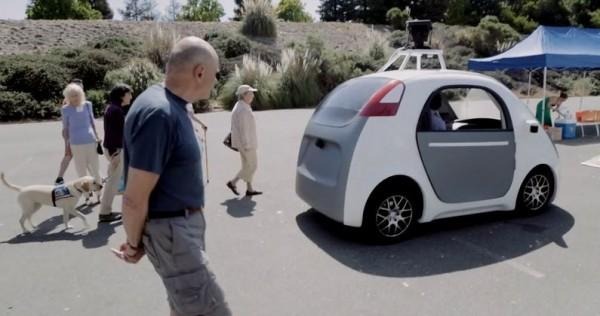Google "Arrogant" Self-Driving Car Plans Turn Off Automakers
Google may be bringing self-driving cars to the public, but its "pod-car" trial is likely to remain small-scale sources claim amid ongoing tensions with traditional auto makers. Legal concerns insufficiently placated by Google's own promises to take responsibility for self-driving accidents, along with accusations of arrogance on the part of the search giant have left negotiations cold.
Talk of tensions between Google and the big automakers isn't new; last year, reports suggested that discussions had taken place but that the possibility of a deal was dropped. A new Reuters report, however, has gone into greater detail about exactly what the hangups were.
One major issue is said to have been a sense of arrogance auto manufacturers perceived from Google's delegation. The search company and its Google X team are said to have entered the 2012 talks with an attitude of "We know what we're doing, you just help us," according to a representative of an unnamed manufacturer involved.
Google is believed to have been looking more for an OEM than a partnership, similar to how its Nexus phone program works, where a car company would effectively hand over responsibility for the autonomous aspect.

That wasn't going to fly among the manufacturers, however, taking what was claimed to be a more realistic approach to things like liability should autonomous vehicles crash or encounter other issues. Google is said to have promised at least one car company that it would itself take responsibility for any accidents that came as a result of the Google-made autonomous tech, arguing that the scale of the data-logging meant that assigning liability would be an easy matter.
The car firm involved, however, was dubious, pointing out that it would be lawyers, judges, and juries which decided on blame, not the person making the vehicle.
That could be complicated by what access manufacturers have to mapping data, which is becoming increasingly detailed so that self-driving cars can sufficiently navigate without driver involvement. Initially, Google's "pod" cars will have limited range, curtailed by the extent of the higher-resolution maps.
Such limits could end up narrowing the markets where car companies could offer their own vehicles, leaving them dependent on Google's mapping efforts before sales could expand to new territories.
Despite the tensions – described as Google and automotive firms "talking a different language" – Google remains in close contact with some of the companies, it's said, including talking on a weekly basis with at least one. Industry insiders expect some sort of deal to be inevitable if Google's ambitions are to go anywhere beyond relatively small-scale trials, too, since the costs involved in launching a regular vehicle, never mind an autonomous one, are vast.
SOURCE Reuters
